By Daily Sports on June 26, 2020
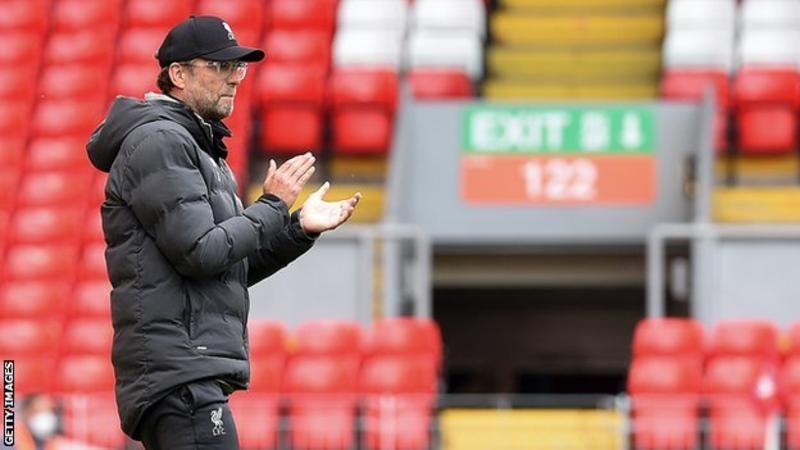
When Jurgen Klopp walked into Anfield for his first day as Liverpool manager on 8 October 2015, there was one keynote message from his public address.
“We must turn from doubters to believers,” said the charismatic German as he sat in front of the cameras and lights of the world’s media.
Less than five years on, no-one doubts Klopp or his players. After a remarkable rise from 10th place on his arrival to European champions for the sixth time, they have now returned to their domestic perch as Premier League champions, too.
Liverpool and their manager were forced to wait an extra three months for their coronation as the season was halted by the global coronavirus pandemic but the silverware is reward for his revitalisation of the club and its support.
Klopp’s public persona is the big man with the tactile approach and the booming laugh. The animated presence in the technical area, celebrating with players and fans. So much more goes on behind the public image – so much more that gives the lie to those who nonsensically claimed Klopp’s greatest coaching quality in his early days was as a cheerleader.
Behind the scenes, away from the public gaze, his meticulous approach, as well as his intellect for football’s modern methods and matters outside the game, make him the towering figure in Liverpool’s spectacular revival.
The notion that he simply strolls around Melwood smiling and hugging people may sustain those who wish to pour cold water on his brilliant successes, or downplay his tactical shrewdness. The reality could not be more different.
Klopp believes the training ground is where the difference is made. This is where the drills are run through, where tactical ideas are tried and tested. Bolt onto this some spectacular recruitment and you have the 2019-20 Premier League champions.
Every session is meticulously planned with his staff before training. Klopp will then address his players to outline their work in depth. He is not just Liverpool’s manager, he is Liverpool’s coach. Every aspect of every day is plotted and analysed in minute detail.
In preparing for games, he insatiably gathers information before condensing it into the essential and most urgent details. Inside Anfield this is regarded as a key skill that helps drive one of his best qualities – the ability to take big decisions quickly, without prevarication, and getting those decisions right.
Klopp himself is the exact model of planning and efficiency he expects of others. He insists on punctuality, on everything operating like clockwork. If a meeting is planned for 10am, 10am it is. His and Liverpool’s success is the result of a fiercely driven individual. The hard work of the manager and all those behind him. As he says: “I live 100% for the boys, with the boys.”
There are no gimmicks. No “Hollywood” moment was transformative in the story leading to Liverpool’s coronation as Premier League champions. Klopp is the leader, strategist and inspiration. But of course there is also a team behind him.
When the German arrived at Anfield it was inevitable that he would be joined by two of his closest, most trusted allies – Zeljko Buvac and Peter Krawietz.
Buvac and Krawietz had been central to Klopp’s management team at Mainz and Borussia Dortmund. The trio came as a package wherever he went. Within that structure, the taciturn Bosnian-Serb Buvac was known as “The Brain” for his awareness of tactical detail while German Krawietz was “The Eye” for his acute analytical skills.
But when Buvac’s 17-year association with Klopp ended suddenly in April 2018, it led to a new dynamic in Liverpool’s coaching set-up – and new levels of success.
Klopp, of course, is the leader in all respects, while Krawietz is now joined by Pep Ljinders.
The 37-year-old Dutchman had already made a huge impression at Liverpool, having worked at the club as an under-16s coach before being appointed first-team development coach in 2015.
Three years later, Ljinders left to take over as manager of NEC Nijmegen in the Netherlands. It proved to be a short stint and when he left, Klopp had no hesitation in bringing him back for the start of the 2018-19 season to fill the gap vacated by Buvac.
Both Krawietz and Lijnders are assistant managers. No hierarchy exists and both serve crucial, differing roles within Klopp’s team. Krawietz runs a team of four analysts, focusing on all aspects of previous and forthcoming games – a role so integral it shapes training sessions and team selection. He is on the training ground every day.
An example of how the Klopp-Krawietz partnership works is seen in messages exchanged by the pair during the 2018 World Cup in Russia.
They had homed in on the increasing influence of set-pieces, both defensive and attacking, and a decision was made to be more innovative, especially as Liverpool were now armed with the height of Virgil van Dijk and the delivery of Trent Alexander-Arnold. The facts speak for themselves.
In 2017-18, Liverpool scored 13 goals and conceded 12 from set-pieces. Increased focus and innovation following the World Cup saw them score 29 and concede only eight in the subsequent campaign.
Such enlightened attention to detail even included the arrival of a dedicated throw-in coach, the Dane Thomas Gronnemark, after the tournament, an appointment designed to eradicate errors and maximise the many re-starts from this position during games.
However, Liverpool and Krawietz are not slaves to specifics. He and Klopp still want room for free thinking and spontaneity at set-pieces. What greater example than Trent Alexander-Arnold's quickly taken corner that caught Barcelona cold in last season's Champions League semi-final second leg at Anfield?
During a normal week at Melwood, Krawietz will usually present Klopp with 90 minutes of analytical detail which will be whittled down over the course of two meetings to a 25-30 minute presentation which the manager will deliver the day before the game.
The main aim of the session is that Liverpool’s players are made aware of their opponents’ strengths. But they also leave the room with greater confidence in their own ability to do damage.
Klopp, as ever, takes the final decisions. But the analysis provided by Krawietz has always been crucial. As is the more visible presence of the lively, tactically sharp Lijnders.
He is a vocal, traditional assistant who takes many training sessions along with Klopp. He is also the buffer between other non-football departments at Liverpool, shaping operational management and drawing up schedules to ensure players get enough rest, deciding when to train and maximising performance.
Klopp’s confidence in himself and those around him is such that he says: “I know I’m good at a couple of things and really good at a few things and that’s enough. My confidence is big enough that I can really let people grow next to me. That’s no problem. I need experts around me.”
It is a three-pronged approach that brought almost perfection at various stages over the past two seasons and, to use the words of Brian Clough about Peter Taylor, the goods at the back of the store are almost as essential to the overall package as what is in the shop window.
On the pitch, Klopp has earned his reputation alongside the other coaching greats now in the Premier League, such as Manchester City’s Pep Guardiola, Carlo Ancelotti at Everton and Jose Mourinho at Tottenham.
He has also, almost without fail, made players better, whether they were signed by him or already at Liverpool.
Liverpool captain Jordan Henderson, signed by Kenny Dalglish in June 2011, had his doubters almost up to the time he lifted the Champions League in Madrid last May. Klopp never wavered. Now, Henderson’s form and reputation has never been higher.
Roberto Firmino is another he inherited. His signing from Hoffenheim in June 2015 initially raised doubts over Liverpool’s “transfer committee”, the group that used to lead buying strategy and was responsible for far more failures than successes.
In a previous time, there was justifiable cause to question a muddled transfer policy, especially after the £75m sale of Luis Suarez to Barcelona in summer 2014. The prime example was the folly of subsequently spending £16m on Mario Balotelli from AC Milan, shortly after then-manager Brendan Rodgers had insisted publicly: “I can categorically tell you he will not be coming to Liverpool.”
Firmino has now moved into the category of world class under Klopp’s tutelage. Virgil van Dijk, Mohamed Salah, Sadio Mane and goalkeeper Alisson – who all had quality on arrival – have become even better for Klopp’s work.
Mane told BBC Sport: “He is close to his players and he gives us responsibility on the pitch, which is really important for each player. At the same time he is very friendly with us. That is one of his big strengths.”
Since Klopp’s arrival, Liverpool’s transfer business has become the template for efficiency. This January, before any rivals had made their moves, a £7.5m deal for Red Bull Salzburg’s Takumi Minamino was signed, sealed and delivered for the first day of the month. The same was true of the £75m move for Van Dijk from Southampton. Deal announced on 27 December 2017. Deal signed 1 January 2018.
And this is down, in large part, to what those behind the scenes at Anfield describe as Liverpool’s “Holy Trinity”. The relationship between Klopp, sporting director Michael Edwards and Mike Gordon, the man with the second biggest equity stake in the club and who could be described as the “managing owner”.
Gordon has the complete trust of principal owner John W Henry and chairman Tom Werner. While Henry may be the figurehead, Gordon is the most influential owner in many ways because he makes the crucial decisions along with Klopp and Edwards – whether it is a signing, contract renewals or extensions, even down to the recruitment of academy coaches.
Gordon has the final sign-off on major projects, such as the £60m extension of the Anfield Road Stand to take capacity above 60,000, and the new £50m training facility at Kirkby. But he is not simply the man who signs the cheques. Anfield insiders acknowledge his sharp football brain as well as business acumen.
He sees his role as empowering Klopp and Edwards to ensure the football operation flourishes. He has total trust and confidence in their judgement. The three are in constant touch daily, WhatsApp messages fly between all parties.
Edwards joined the club as head of analytics in 2011 and was appointed as sporting director in November 2016. In terms of public profile, he remains secretive and elusive, out of the public eye. He believes that helps him do his work under the radar to deliver what Klopp and Liverpool need.
Inside Melwood, the story is very different. Edwards is respected and admired, operating an open-door policy and having his own trusted staff such as head of scouting and recruitment Dave Fallows, chief scout Barry Hunter, and Ian Graham, Julian Ward and Dave Woodfine.
When Klopp signed a new contract in December, tying him to the club until summer 2024, he said: “I must highlight the role of our sporting director Michael Edwards in this journey so far. His input and collaboration has been just as important as anyone else's in getting us into a position to compete for the game’s top titles.”
Edwards has his team. Klopp has his. Gordon empowers and discusses before signing off, and therein lies the method behind Liverpool’s brilliant resurgence.
One of the classic examples of how this triangle of power works came when, in Hong Kong on a pre-season tour in summer 2017, midfielder Philippe Coutinho effectively told the club that overnight he had become unhappy and wanted to move to Barcelona, who had just sold Neymar to Paris St-Germain.
Coutinho, despite his obvious brilliance, was actually regarded by some as a player Liverpool had come to rely on too much. When he did not perform, as in the 2016 Europa League final loss to Sevilla in Basel, the overall team suffered.
When the Brazilian duly made his move in January 2018, plans were in place to conclude two of the most important signings in the club’s recent history, following up the long-planned pursuit of Van Dijk with the £66.8m arrival of Brazil goalkeeper Alisson from Roma in July 2018.
Coutinho was not replaced, but acquisitions were made in other areas that pushed Liverpool to their current level.
In February 2017, Liverpool had drawn up their list of transfer targets that included the likes of Bayer Leverkusen’s Julian Brandt and Christian Pulisic, who was coming to prominence at Borussia Dortmund and is now with Chelsea. The name of Roma’s Mohamed Salah lurked elsewhere on Liverpool’s radar.
Salah was the deal that was done, with Klopp very happy to give much of the credit to the forceful opinions of Edwards that this was a potentially game-changing signing.
This cool, analytical, collegiate system is now the envy of Europe’s elite clubs and central to the plans that have brought the title back to Anfield after 30 years.
Klopp has not simply built for the present. He is taking care of the future.
In his first days at Liverpool in October 2015, he was pictured gazing out over the Melwood training grounds with academy director Alex Inglethorpe. This wasn’t just a new manager doing the rounds. He was seeing what he had to work with.
Klopp is willing to spend big but not with waste, and the development of youngsters such as teenagers Curtis Jones and Neco Williams in FA Cup wins over Everton and Shrewsbury Town - when Klopp entrusted his under-23s while he and the seniors took a winter break – is confirmation of this strategy.
He is a firm believer in looking first from within. Liverpool will make the high-profile signings and are in a healthy position to do so, but Klopp knows he has golden reserves. The development of Jones and Williams, and his trust in them, means Liverpool arguably have another £50m that can be spent elsewhere.
Not that Klopp is a romantic. All decisions are based on hard-headed business reality and if the game-changer is there, Liverpool will be in the hunt. Klopp is frugal but strategic. It is an all-encompassing policy that has renewed Liverpool to the point where they are, in the eyes of many, Europe's finest side with a team and club built in Klopp's image.
Former Liverpool chief executive Ian Ayre, who sat at Klopp’s right hand when he was introduced at Anfield, says: “Is Jurgen right for Liverpool? The answer is absolutely.
“Everything is natural. Nothing is made up. He doesn’t do anything for effect. He is naturally engaging. He raises the energy level in a room when he walks in.
“He is big and imposing. He is a hugger. All these things he does because it is natural to him. He doesn’t think ‘I’m going to hug the staff and the players’. He does it because he cares for these people. That is who Jurgen Klopp is. He just fits perfectly.”
•Courtesy of BBC. PHOTO: All-conquering Liverpool Manager Jurgen Klopp
Source Daily Sports
Posted June 26, 2020
You may also like...
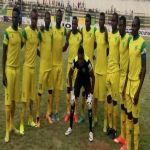
Plateau United extend derby supremacy vs. Lobi Stars...
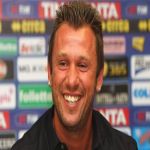
Cassano retires again, 5 days after comeback
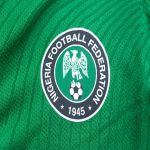
NFF Should Resolve Anambra FA Board Puzzle—- Stakeholders...
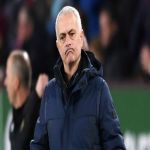
Mourinho: Tottenham Will Win Trophies Before I Leave...
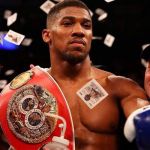
Buhari congratulates World IBF heavyweight Champion
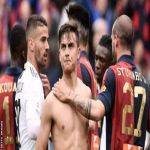
Ronaldo Missing as Juventus Suffer First Serie A...

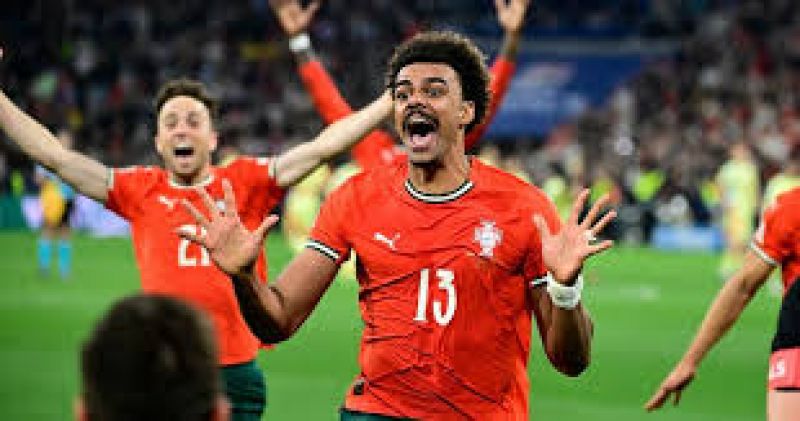 Portugal plot Nigeria pre-World Cup friendly
Portugal plot Nigeria pre-World Cup friendly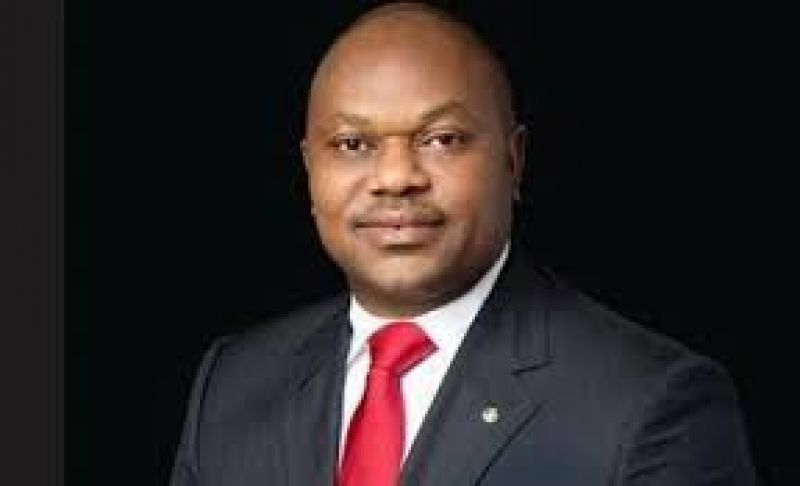 Nigeria host Uzbekistan in 2026 Davis Cup play-off
Nigeria host Uzbekistan in 2026 Davis Cup play-off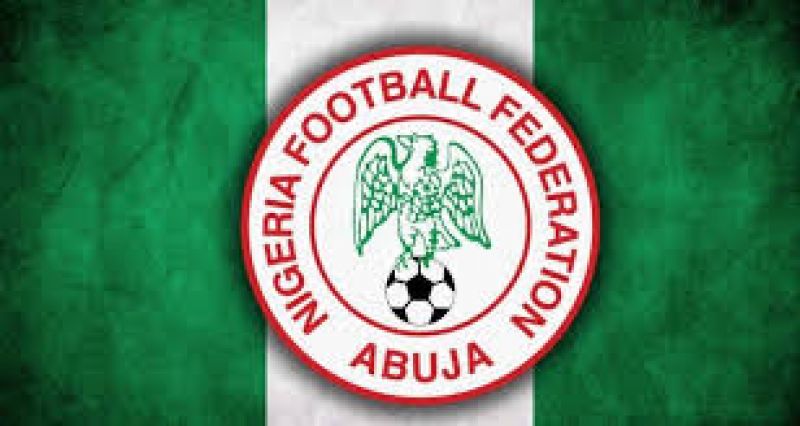 NFF reduces Remo home ban to five games
NFF reduces Remo home ban to five games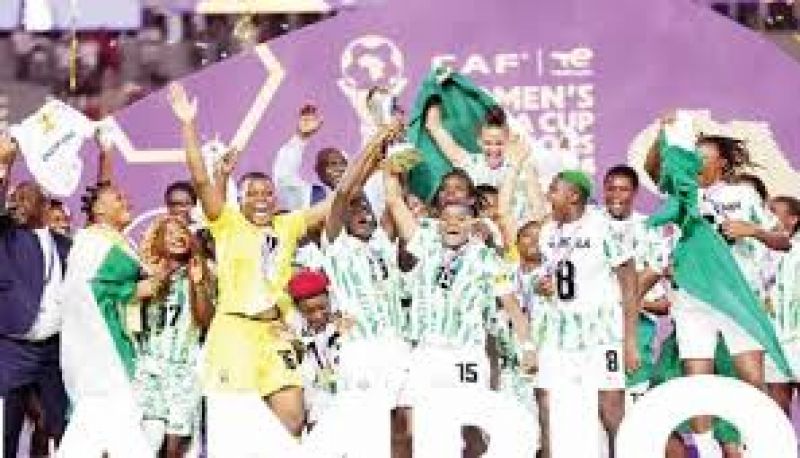 Zambia fire Falcons warning ahead WAFCON 2026
Zambia fire Falcons warning ahead WAFCON 2026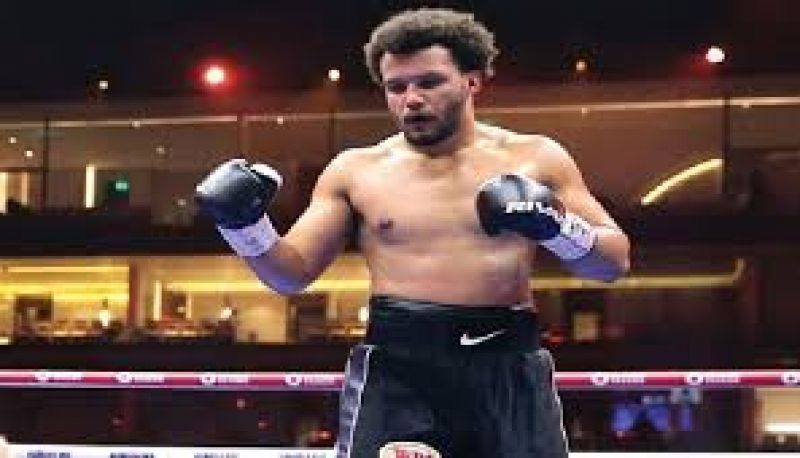 Itauma not ready for Usyk — Ex-champ Nelson
Itauma not ready for Usyk — Ex-champ Nelson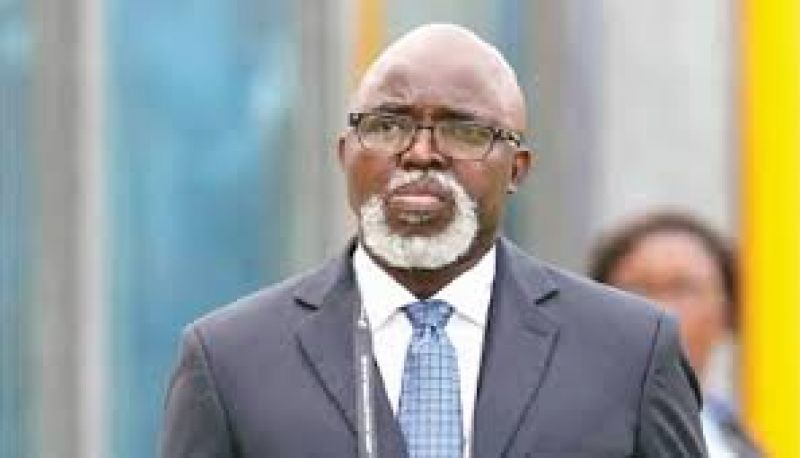 Nigeria wouldn’t miss 2026 W’Cup under me – Pinnick
Nigeria wouldn’t miss 2026 W’Cup under me – Pinnick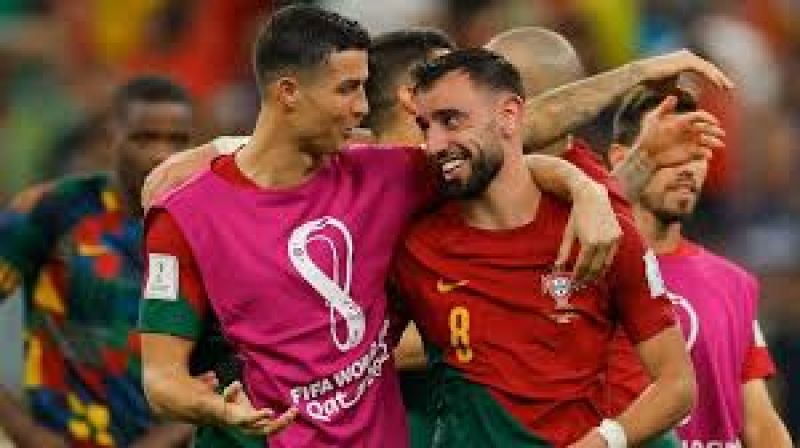 Portugal Plan Friendly Against Super Eagles Ahead of 2026 World Cup
Portugal Plan Friendly Against Super Eagles Ahead of 2026 World Cup_8.jpg) They’re very good players – Osimhen on Galatasaray interest in Lookman, Pape Gueye
They’re very good players – Osimhen on Galatasaray interest in Lookman, Pape Gueye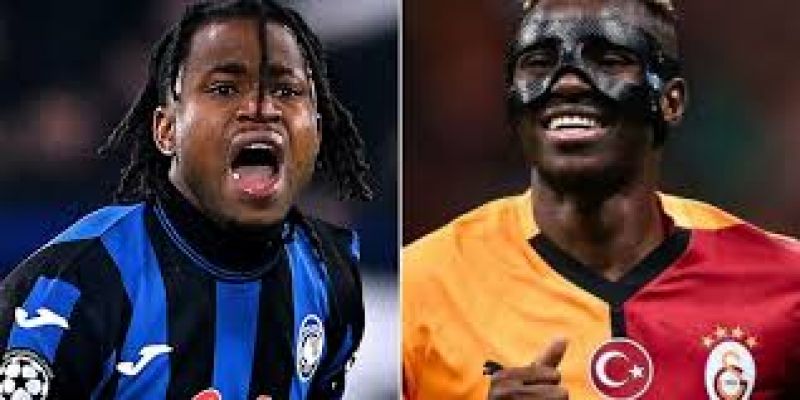 Six Nigerian stars secure Champions League knockout spots
Six Nigerian stars secure Champions League knockout spots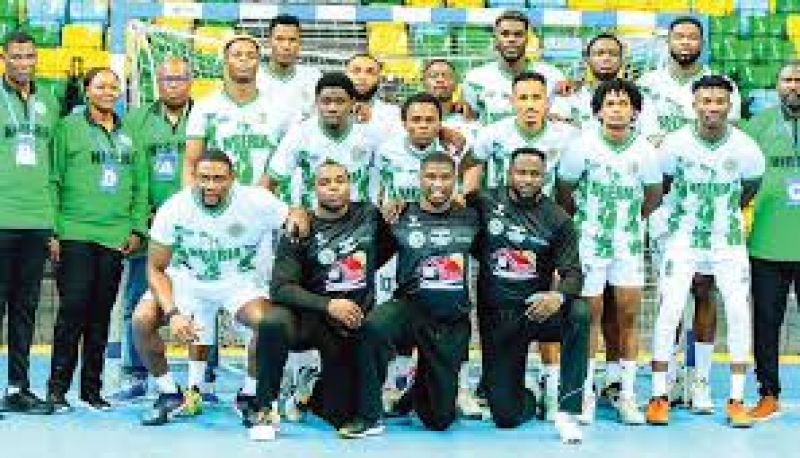 Nigeria battle Guinea for handball World Cup ticket
Nigeria battle Guinea for handball World Cup ticket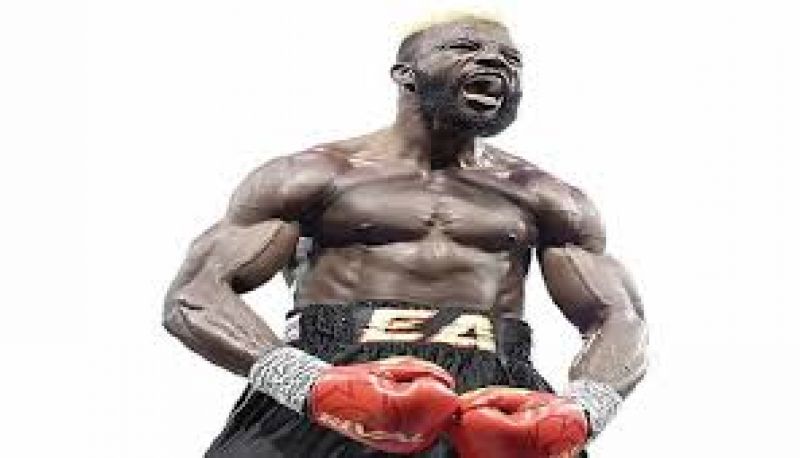 Ajagba steps up prep for Martin fight
Ajagba steps up prep for Martin fight AFCON 2025 Final Fallout: CAF Suspends Coach, Players, Fines Two Federations
AFCON 2025 Final Fallout: CAF Suspends Coach, Players, Fines Two Federations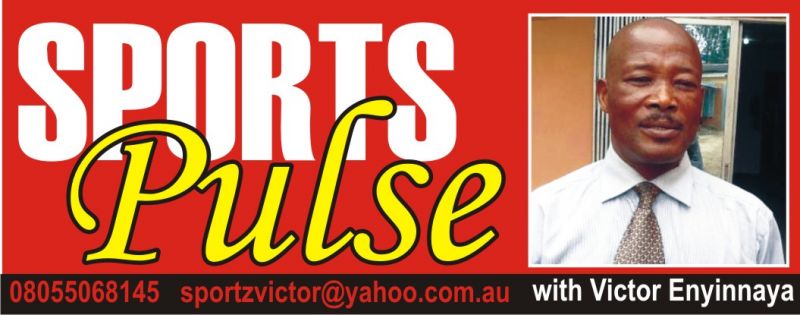 Rangers International going, going . . . (63,500 views)
Rangers International going, going . . . (63,500 views)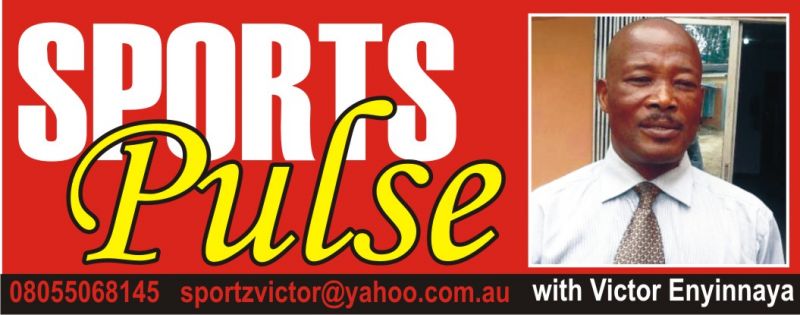 Amaju Pinnick: A cat with nine lives (54,800 views)
Amaju Pinnick: A cat with nine lives (54,800 views)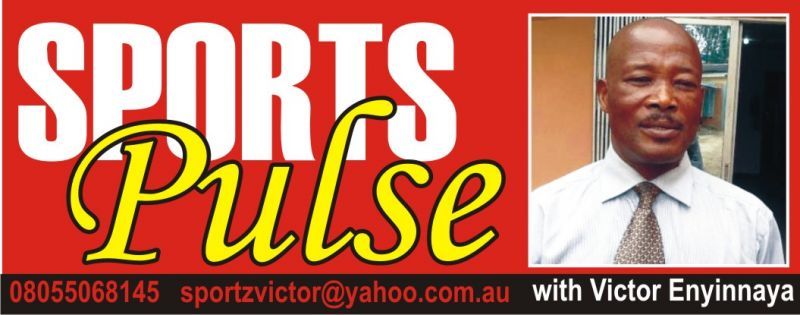 Second Term: Amaju Pinnick, Other NFF Heavyweights Home to Roost •How Pinnick Broke the Jinx (52,698 views)
Second Term: Amaju Pinnick, Other NFF Heavyweights Home to Roost •How Pinnick Broke the Jinx (52,698 views)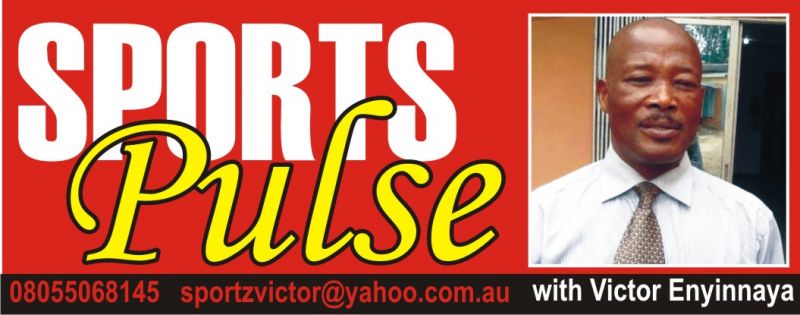 Current issues in Nigerian sports: Matters arising (52,352 views)
Current issues in Nigerian sports: Matters arising (52,352 views)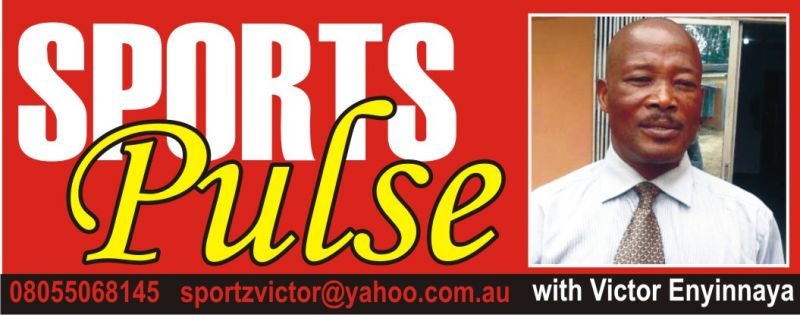 Sports Development: Zenith Bank on the zenith (52,286 views)
Sports Development: Zenith Bank on the zenith (52,286 views)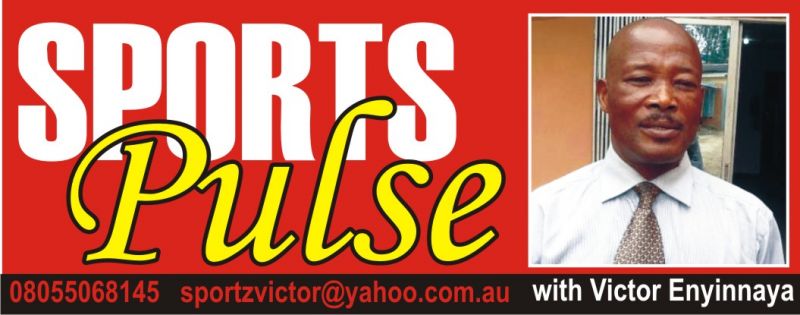 Missing $150,000 IAAF Grant: Solomon Dalung’s Hide and Seek game (52,196 views)
Missing $150,000 IAAF Grant: Solomon Dalung’s Hide and Seek game (52,196 views)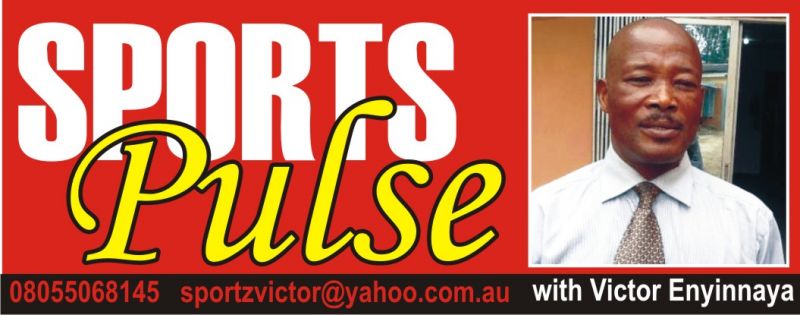 Gov. Abdullahi Ganduje’s solid footprints, commitment to sports development in Kano State (52,066 views)
Gov. Abdullahi Ganduje’s solid footprints, commitment to sports development in Kano State (52,066 views)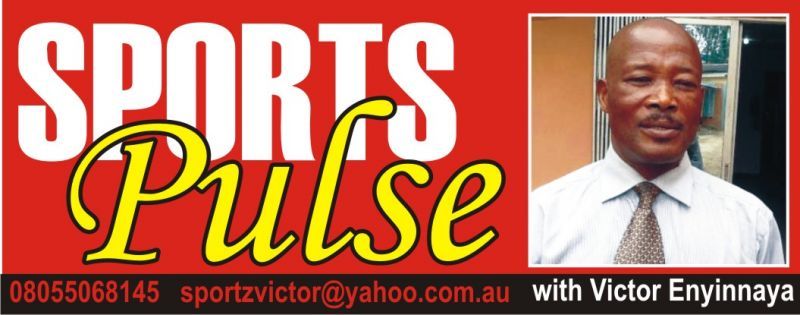 NFF Presidency: Pinnick, Maigari, Ogunjobi, Okoye in Battle for Supremacy (51,618 views)
NFF Presidency: Pinnick, Maigari, Ogunjobi, Okoye in Battle for Supremacy (51,618 views)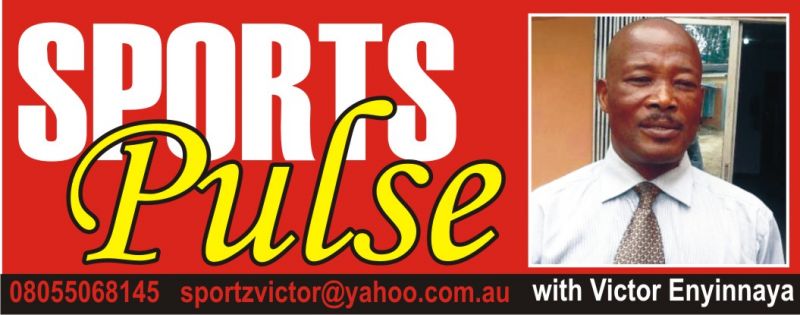 Olopade, BET9A wave of revolution in NNL (50,794 views)
Olopade, BET9A wave of revolution in NNL (50,794 views)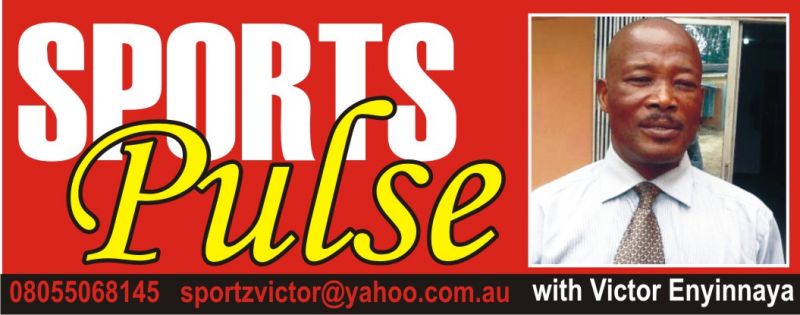 Commonwealth Games 2018: Shame of Muhammadu Buhari, Solomon Dalung (49,320 views)
Commonwealth Games 2018: Shame of Muhammadu Buhari, Solomon Dalung (49,320 views)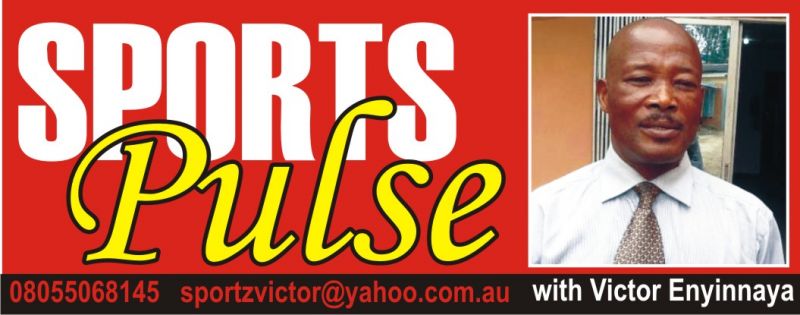 Ibrahimovic’s Man U exit: Whose decision is it? And in whose interest? (47,712 views)
Ibrahimovic’s Man U exit: Whose decision is it? And in whose interest? (47,712 views)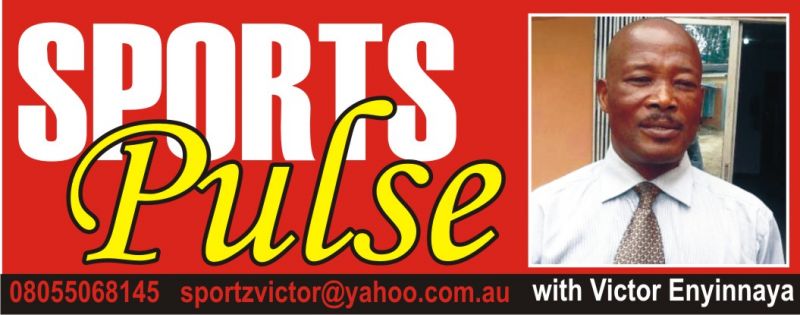 John Mikel Obi: Segun Odegbami’s Outrageous Call! (47,180 views)
John Mikel Obi: Segun Odegbami’s Outrageous Call! (47,180 views)